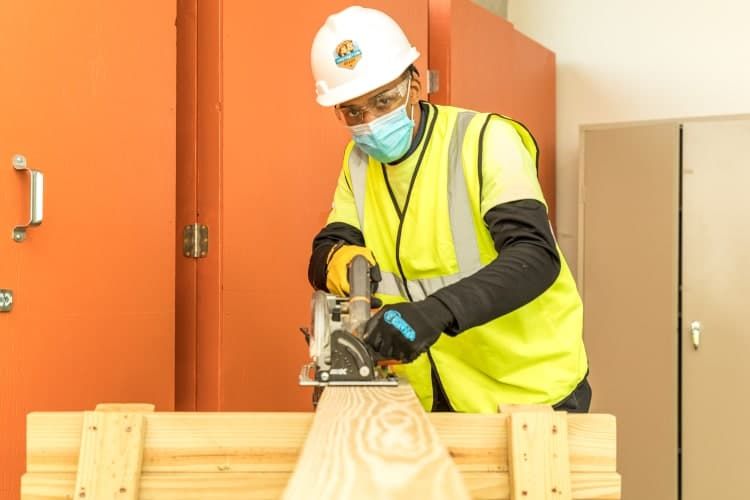Are Construction Jobs Recession-Proof?

Starting in January 2022, the City of Jacksonville (FL) instituted a 6-cent per gallon increase in the local tax on gasoline. That meant the total tax on gas rose to 12 cents per gallon. And this was during a time when macroeconomic forces were already pushing gas prices up.
Why was the city willing to tax gasoline when gas was already really expensive? Construction. That’s why.
Time and time again, we see cities, states, and the federal government investing in construction, often in spite of economic conditions that might make some question whether it’s the right time for those projects. The reason is simple. Everybody needs construction, no matter the state of the economy.
Roads and bridges get old. Cities grow. Citizens’ transit needs change. What’s more, new construction often requires additional construction in the form of drainage system upgrades and utility infrastructure expansions.
Basically, there’s always a job to be done.
The point is that there’s always a need for construction workers.
Does that mean construction jobs are recession-proof? No. But also yes! Kind of. The answer isn’t black and white.
Here’s what’s definitely true: Since some types of construction are always needed, construction workers almost always have the ability to find work during economic downturns.
We’d like to expand a little on what exactly that means. You see, not all recessions are the same. Some recessions might reduce the demand for certain types of construction jobs. But others, such as the recession that resulted from the coronavirus pandemic, can actually increase demand for construction workers — even as the recession causes problems for other areas of the economy.
The truth is that no job is 100% recession-proof. But construction is pretty darn close, especially if you know how to capitalize on your transferable skills.
A tale of two recessions
Read any news reports on the effect of the 2008 Great Recession on the construction industry, and it’s all doom and gloom. The industry definitely lost jobs during that recession, although it quickly bounced back as conditions improved. In just a few years, there was a worker shortage in construction (again), and employers were scrambling to find credentialed workers.
The reason construction fared poorly at the outset of that recession had to do with the nature of the recession itself. The housing market was out of control. Communities were building more homes and commercial properties than their local economies could actually support. When the bubble burst, they had to quit building.
Remember that communities didn’t have to quit improving roads, fixing HVAC systems, or repairing electrical infrastructure. Those construction jobs were still needed, as they always are
Now fast forward to the coronavirus recession, which began in 2020. Construction, like virtually all industries, took a hit at the outset, but it didn’t last long. Within just a few months, nearly all of the jobs lost had come back. Why was that?
Well, many construction professionals were considered “essential workers.” They didn’t have to go home and hunker down like workers in other industries. But here’s the other thing that happened. Our collective isolation spurred demand for work that construction professionals are uniquely qualified to perform.
Electricians, plumbers, drywall installers, HVAC technicians… These construction pros were needed during the coronavirus recession even more than they were before it started! Spending on home improvements, in particular, skyrocketed during 2020 and 2021. Even if a construction worker on a big commercial project lost his or her job at the outset of COVID, there was likely a job waiting for that person in some other area of construction.
In other words, there was work for those who were willing to be flexible.
And construction experience helps make you flexible.
Transferable skills are your biggest asset during a recession
There are no recession-proof industries or recession-proof jobs. However, there are individuals who are aware of the skills they have and know how to market those skills to prospective employers.
For example, you might not have ever held the title “electrician.” But if you have experience servicing and installing commercial HVAC equipment, your experience with mechanical systems exposes you to a lot of electrical work. You probably know more than you realize about the work an electrician does, even if you’ve never been one. If you ever lost your current job working with mechanical equipment, you could start applying for positions in HVAC, electrical work, drywall installation (you’ve run ducts, right?), and other areas.
In other words, if you can recognize your transferable skills and be flexible about the types of roles you’re willing to take on, you’re better positioned to weather a recession than many workers in many industries. Yes, it all depends on which sectors a given recession hits the hardest. But the workers who are the most flexible are less likely to experience long periods of unemployment.
Get trained to work in an industry that’s always in demand
No matter what, some kinds of construction work will always be in demand. What’s great about this industry is that when you train to do one type of job, you nearly always pick up a lot of skills that you can transfer to other types of construction work. The nature of the job creates a lot of flexibility (and financial rewards) for those who stick with it!
If you’re interested in working in the construction industry, Construction Ready’s fully funded 20-day program can prepare you for your first construction job. A combination of government grants and private donations funds the training, so you pay nothing! 97% of our graduates also secure their first construction job before they even finish the course.
To learn more about Construction Ready or sign up, get in touch with us today!


